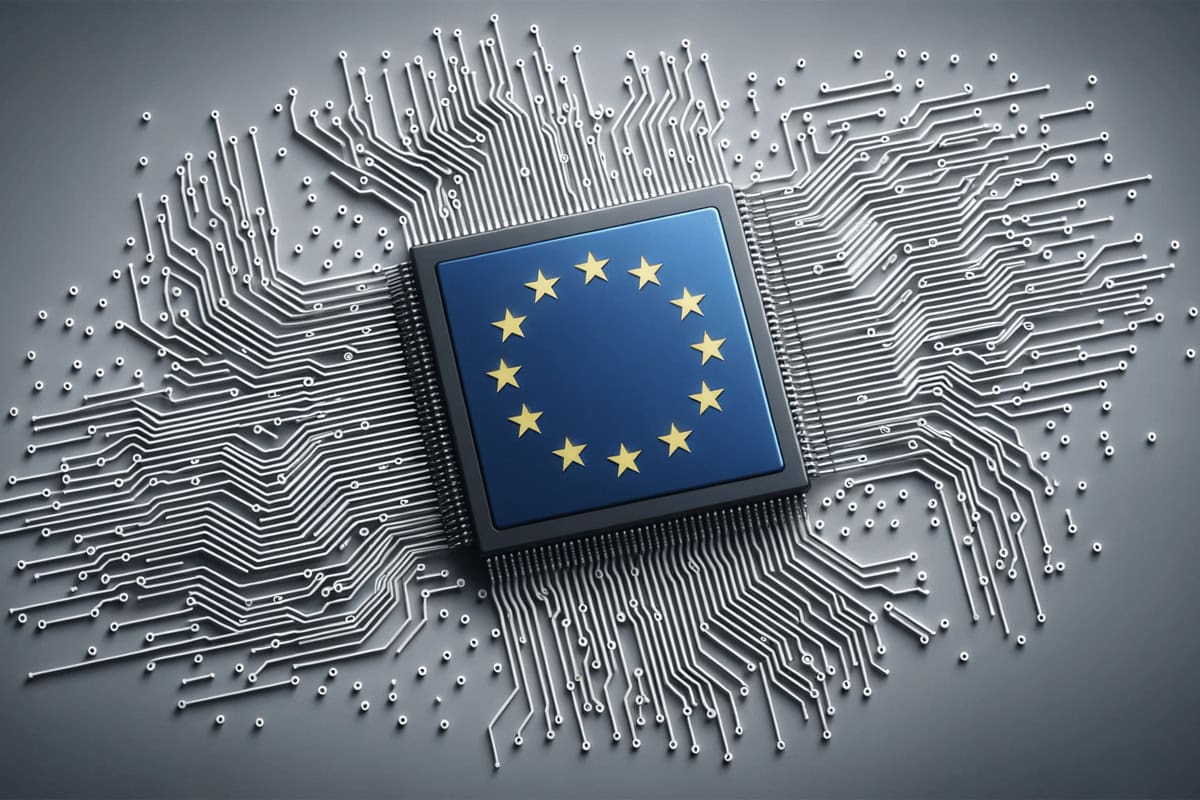EU Aims to Compete with U.S. and China in AI Race
PARIS— The European Union is making a bold move to solidify its place in the global artificial intelligence race, announcing a massive €200 billion investment plan at the AI Action Summit in Paris. European Commission President Ursula von der Leyen unveiled the initiative, InvestAI, which aims to boost AI infrastructure, enhance research capabilities, and drive competitiveness against the United States and China.
The plan includes €50 billion in new funding, with €20 billion earmarked for the construction of four AI gigafactories across Europe. These facilities will be dedicated to advanced AI research, data processing, and computing power, ensuring that Europe does not fall behind in the rapidly evolving AI sector.
Bridging the AI Gap
For years, Europe has lagged behind the U.S. and China in AI innovation, with American tech giants like OpenAI, Google, and Microsoft dominating the field and Chinese firms such as DeepSeek and Baidu making significant advances. The EU’s investment aims to change that narrative by fostering homegrown AI advancements while ensuring ethical and regulatory oversight to protect public trust.
“Europe cannot afford to be a spectator in the AI revolution,” von der Leyen stated at the summit.
“With InvestAI, we are creating a foundation for sustainable, ethical, and competitive AI development in the European Union.”
This plan also aligns with the EU’s strict regulatory framework on AI, including the AI Act, which aims to ensure AI systems meet transparency and fairness standards. Unlike the U.S. and China, which have taken more flexible regulatory approaches, the EU is prioritizing responsible AI development while still seeking to accelerate innovation.
Strategic Investments and Infrastructure Growth
The €200 billion funding package will be distributed across multiple sectors to ensure a broad impact.
? €50 billion in new funding – For AI research, innovation hubs, and start-up accelerators.
? €20 billion for four AI gigafactories – To process large-scale AI models and computing power.
? €40 billion for AI-powered industries – Including healthcare, energy, and transportation.
? €10 billion in AI education and training – To develop a highly skilled AI workforce.
? €80 billion in private sector partnerships – Encouraging European companies to invest in AI development.
The gigafactories, set to be built in Germany, France, the Netherlands, and Sweden, will be crucial for processing massive AI datasets and training advanced AI models. These locations were chosen due to their strong digital infrastructure and access to renewable energy, ensuring sustainability in AI advancements.
Competing with Global AI Leaders
With China investing heavily in AI research and the U.S. continuing to dominate the industry, Europe is playing catch-up. However, experts believe this investment could bridge the gap and position the EU as a global leader in ethical AI development.
“This is not just about competing—it’s about creating an alternative AI ecosystem where trust, security, and ethics are at the core,” said AI policy analyst Dr. Sophie Laurent at the summit.
Despite the ambitious nature of the plan, challenges remain, including bureaucratic hurdles, regulatory constraints, and the need for faster execution. Some critics argue that EU regulations on AI may slow innovation compared to the more flexible models in the U.S. and China.
What’s Next?
The InvestAI plan is set to roll out over the next five years, with initial funding expected to be distributed by early 2026. The EU will also introduce an AI oversight body to monitor compliance, funding allocation, and project execution.
As the AI race intensifies, the success of this investment will determine Europe’s role in shaping the future of artificial intelligence. Will the EU emerge as a leader in ethical AI, or will it struggle to keep pace with the technological giants of the U.S. and China?
One thing is clear—Europe is no longer sitting on the sidelines.

 Top 10 Influential AI Thinkers in 2025
Top 10 Influential AI Thinkers in 2025